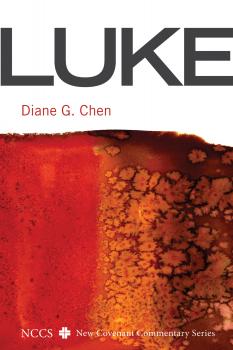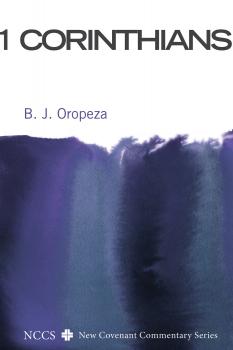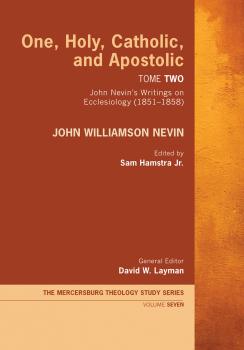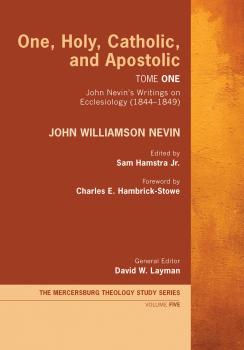ТОП просматриваемых книг сайта:
Религия: прочее
Различные книги в жанре Религия: прочее, доступные для чтения и скачиванияАннотация
No Word for the Sea is built on several layers of questioning: What is language? What is memory? Where does the mind go when the circuits shut down? The novel covers seven years in the lives of Solome and Stephen Savard in St. Paul, Minnesota. Stephen is provost at Cobson College, and Solome has raised three children. The events alternate between Stephen's first-person narrative and Solome's third-person narrative in accord with the breaking text of their lives. «Once there was a common Indo-European language with words for winter and horse, but no word for the sea.» The history of the English language has an inland origin. As they find themselves stranded in the destructive effects of Stephen's Alzheimer's, there also is an exploration of resolution that comes from such an experience. Mark 8:36 asks, «What does it profit a man if he gain the whole world, and lose his own soul?» No Word for the Sea asks, «What if a man gains his soul, but loses the world?»
Аннотация
In this highly readable and engaging commentary on the Gospel of Luke, Diane Chen introduces her readers to the particularities of the world of Jesus, steeped in Jewish history and convictions yet threatened by Roman power and hegemony. In story after story, Chen brings to focus the diligence of a faithful historian, the artistry of a masterful storyteller, and the courage of an insightful theologian behind this well-loved Gospel. In it Luke presents God's plan of salvation in the birth and death, word and deed, and identity and mission of Jesus of Nazareth–a plan that is unapologetically counterintuitive: the proud is humbled and the lowly is lifted up; the ostracized is embraced and the religious elite is rejected. Modern readers will receive more than a lucid explanation of the biblical text; they will be challenged to find their own place in Jesus' story, one that encourages self-reflection and necessitates a personal response.
Аннотация
Life comes with ups and downs, including the trauma of loss, death, and grief. Because such experiences are no respecter of persons, such trauma is a levelling agent. Every human being experiences some type of loss, from that of loved ones, relationships, jobs, and status to that of property, belief systems, and deteriorating health. Some loss appears seasonal; some expected and unexpected; others overwhelming and life changing. Baptized Rage, Transformed Grief is a cornucopia of poems that express deep, volcanic rage amid significant loss; such rage can be creative. The triumph of processing and experiencing a grief as deep as an ocean is that it results in transformation: the love that produced profound loss, sustains life. One is able to overcome after going through the angst and the agony. Baptized Rage, Transformed Grief is a dance of words, an invitation to give oneself permission to delve deeply into processing loss, to go through the process of grief, and come through as an authentic, whole self.
Аннотация
This compact commentary on 1 Corinthians is both readable and full of insights that will engage students, ministers, and scholars alike. The Apostle Paul writes to a relatively new church in which members are failing to maintain solidarity with other members. They struggle to find their unique place in Roman society as Gentile followers of Jewish leaders that proclaim Christ as Lord. Their many problems include competition over leadership and social prestige, sexual impropriety, household conflicts, idol foods, table fellowship, protocols on gender and the use of spiritual gifts, and confusion about death, immortality, and Christ's return. Oropeza addresses Paul's response to these and other issues as he engages ancient biblical, Jewish, and Greco-Roman sources along with recent scholarship. This is a must-read for those who want to understand the Corinthian situation and Paul's response in a new way.
Аннотация
"Stop the war on Christmas!" This is a common Christian complaint directed toward those perceived to be secularizing the festive season. However, many Christians forget that the modern festive season was a secular invention and that the «war» on Christmas was initiated by their spiritual forefathers, upon whose shoulders today's biblically sound churches stand.
Should then the Christian endorse Christmas with joy or reject it as folly?
If you hold to a Reformed theology, is «liberty of conscience» a credible principle to employ in the endorsement of Christmas in public worship? This book addresses these and other questions objectively, acknowledging the arguments on both sides.
This thoughtfully illustrated book uses a historical framework to trace the evolution of Christmas from its ancient genesis into the modern era, identifying the contexts and motives that shaped opinion and practice in the Protestant Church, while also exposing as pure myth much that is often accepted as biblical fact.
Abounding with intriguing detail, this book compels the reader to consider the negative effect Christmas has upon biblical doctrine and to contemplate the difficulties associated with the conclusion many arrive at, namely that Christmas meets with the approval of the Lord Jesus.
Should then the Christian endorse Christmas with joy or reject it as folly?
If you hold to a Reformed theology, is «liberty of conscience» a credible principle to employ in the endorsement of Christmas in public worship? This book addresses these and other questions objectively, acknowledging the arguments on both sides.
This thoughtfully illustrated book uses a historical framework to trace the evolution of Christmas from its ancient genesis into the modern era, identifying the contexts and motives that shaped opinion and practice in the Protestant Church, while also exposing as pure myth much that is often accepted as biblical fact.
Abounding with intriguing detail, this book compels the reader to consider the negative effect Christmas has upon biblical doctrine and to contemplate the difficulties associated with the conclusion many arrive at, namely that Christmas meets with the approval of the Lord Jesus.
One, Holy, Catholic, and Apostolic, Tome 2 - John Williamson Nevin
Mercersburg Theology Study SeriesАннотация
John Nevin's vision of the church as «one, holy, catholic, and apostolic» grew out of his critique of the revivalism and sectarianism that prevailed throughout evangelical Christianity in the nineteenth century. He deepens his perception of catholicity as an expression of Christian wholeness, his response to the parochialism that ruled American religion and life. He grounds congregational life and mission in the Lordship of Jesus Christ, ordered by the whole Christian tradition, which comes into focus in the Apostles' Creed. This edition carefully preserves the original texts while providing extensive introductions, annotations, and bibliography to both orient the reader and to facilitate further scholarship.
The Mercersburg Theology Study Series presents for the first time attractive, readable, scholarly modern editions of the key writings of the nineteenth-century movement known as the Mercersburg Theology. An ambitious multi-year project, it aims to make an important contribution to the academic community and to the broader public, who can at last be properly introduced to this unique blend of American and European Reformed and Catholic theology.
The Mercersburg Theology Study Series presents for the first time attractive, readable, scholarly modern editions of the key writings of the nineteenth-century movement known as the Mercersburg Theology. An ambitious multi-year project, it aims to make an important contribution to the academic community and to the broader public, who can at last be properly introduced to this unique blend of American and European Reformed and Catholic theology.
Аннотация
This book introduces David H. C. Read to a new generation, through sermons that are not merely elegantly worded and biblically grounded, but packed with life experience that included a five year stint as a prisoner of war during World War II. From amongst the almost 1500 sermons that Read preached during his ministry in Manhattan, John McTavish has selected forty enduring messages that show David Read, justifying Time magazine's assessment that «Read is not merely elegant and literary; his words carry authority… through his thought runs a strain of deep feeling and faith capable of convincing others.»
Аннотация
What is found in this series, unveils an entirely different side of C.K. Barrett, a side one might never have known about if one had knowledge only of his famous commentaries and monographs. Herein lies a goodly selection of Kingsley's sermons preached largely in small- and medium-sized Methodist churches in the Northeast of England, though often elsewhere in England and around the world. Fred Barrett was not the scholar his son was, but on close inspection, one can most definitely see the impact of the father on the son when it came to preaching. It seems right to include as many sermons from both of these men as we can in this series. One thing sorely lacking in much preaching these days is in-depth engagement with both the biblical text and one's tradition and theology. The sermons in these volumes demonstrate what such preaching can look like. While the first volume presented sermons on the Gospels and Acts, this second volume covers the rest of the New Testament and extensive portions of the Old Testament.
One, Holy, Catholic, and Apostolic, Tome 1 - John Williamson Nevin
Mercersburg Theology Study SeriesАннотация
The mid-nineteenth century is a gold mine for contemporary scholars interested in American Protestant ecclesiology. There one will find the extensive writings of John Nevin who came to the notice of the theological world with The Anxious Bench, a critique of the «quackery» of Protestant revivalism. Influenced by a critical appropriation of cutting-edge contemporary German theology, he came to believe that the church was not «invisible,» but the visible manifestation of Jesus Christ's incarnate life. Christians were to pursue unity, not in external institutional arrangements, but as unity of spiritual life. This compilation presents his theology of the catholicity of the church prior to his masterwork, The Mystical Presence, and a multifaceted, sophisticated critique of American sectarianism. This edition carefully preserves the original texts while providing extensive introductions, annotations, and bibliography.
The Mercersburg Theology Study Series presents for the first time attractive, readable, scholarly modern editions of the key writings of the nineteenth-century movement known as the Mercersburg Theology. An ambitious multi-year project, it aims to make an important contribution to the academic community and to the broader public, who can at last be properly introduced to this unique blend of American and European Reformed and Catholic theology.
The Mercersburg Theology Study Series presents for the first time attractive, readable, scholarly modern editions of the key writings of the nineteenth-century movement known as the Mercersburg Theology. An ambitious multi-year project, it aims to make an important contribution to the academic community and to the broader public, who can at last be properly introduced to this unique blend of American and European Reformed and Catholic theology.










